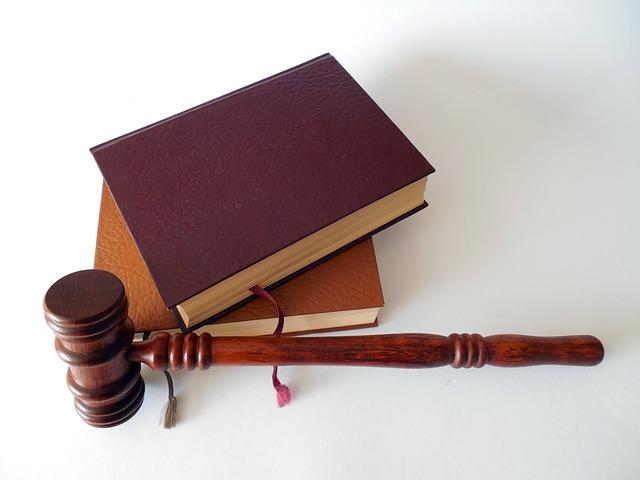When confronting a legal fight, especially in criminal cases, the cycle doesn’t be guaranteed to end with the underlying decision. Appeals can be integral assets for looking for justice and amending legal errors. However, the progress of an appeal frequently depends on how well the case is drafted and introduced.
Here, we dig into the significant parts of drafting an appeal case that post-conviction lawyers should cautiously consider.
Understanding Appellate Jurisdiction
The first move toward drafting an appeal case is figuring out appellate locale. This alludes to the power of a higher court to survey decisions made by lower courts. Appellate lawyers should guarantee that the issues being raised on appeal fall inside the extent of appellate locale. This incorporates identifying errors of law or procedural mix-ups that might have influenced the result of the case.
Identifying Justification for Appeal
Perhaps of the most urgent undertaking in drafting an appeal case is identifying justification for appeal. This includes a careful survey of the preliminary record to pinpoint legal errors or issues that could support an appeal. Shared views for appeal incorporate inadequate help of guidance, errors in jury guidelines, sacred infringement, and newfound evidence. Appeal lawyers assume a critical part in directing this analysis and planning the appeal in view of the identified grounds.
Making Clear and Brief Arguments
A vital part of drafting an appeal case is making clear and succinct arguments. Appellate courts have restricted time and resources, so introducing complex legal issues in a clear way is essential. Appellate attorneys should express their arguments successfully, zeroing in on the legal standards and precedents that support their situation. Lucidity and accuracy in argumentation can significantly improve the odds of coming out on top on appeal.
Careful Legal Research and Analysis
In setting up an appeal case, exhaustive legal research and analysis are vital. Dallas Appeal lawyers should dig into case law, resolutions, and legal principles pertinent to the issues brought up in the appeal. This incorporates identifying good precedents and recognizing ominous ones. Moreover, a thorough comprehension of legal standards and methodology is significant for building a convincing appellate contention.
Regard for Procedural Requirements
Drafting an appeal case additionally requires cautious thoughtfulness regarding procedural requirements. Appellate courts have specific rules and cutoff times that should be kept, from documenting cutoff times to organizing rules for briefs. Post-conviction lawyers should guarantee severe adherence to these requirements to keep away from procedural entanglements that could imperil the appeal.
Viable Brief Writing
The appellate brief is a basic part of an appeal case. Post-conviction lawyers should become amazing at compelling brief composition, introducing their arguments powerfully and convincingly. This includes organizing the brief coherently, giving an unmistakable proclamation of the issues, and supporting arguments with apt legal analysis and references. All around made appellate briefs can significantly impact the result of an appeal.
Oral Advocacy Skills
Notwithstanding composed advocacy, oral advocacy skills are essential in appellate practice. Post-conviction lawyers should be ready to communicate their viewpoint orally under the watchful eye of the appellate court, resolving inquiries from the judges and really articulating their arguments in a restricted time period. Strong oral advocacy can supplement the composed brief and strengthen the general appeal show.
Coordinated effort and Consultation
Fruitful appeal cases frequently include cooperation and meeting among appellate attorneys, experts, and clients. Cooperative endeavors can prompt a more thorough analysis of the case, revealing nuanced legal issues and expected roads for appeal. Talking with experts in significant fields can likewise give important experiences and strengthen the legal arguments introduced on appeal.
Key Considerations
Drafting an appeal case requires key reasoning and arranging. Post-conviction lawyers should think about the more extensive legal scene, including late appellate decisions and advancing legal guidelines. Vital contemplations might include timing the appeal for most extreme effect, evaluating the probability of achievement in light of precedents, and utilizing creative legal arguments to propel the client’s advantages.
Final Word: The Job of Brownstone Appeal Lawyers
In conclusion, drafting an appeal case requires fastidious tender loving care, strong legal analysis, powerful advocacy skills, and key preparation. Post-conviction lawyers assume a significant part in exploring the complexities of appellate practice and looking for justice for their clients.
At Brownstone Appeal Lawyers, we grasp the complexities of appellate advocacy and are devoted to giving excellent portrayal in appeal cases. Our team is focused on maintaining the standards of reasonableness and fair treatment, guaranteeing that each client’s appeal gets the intensive and viable advocacy it merits.





